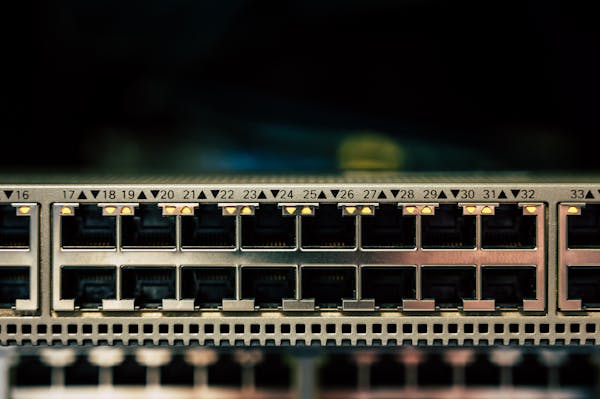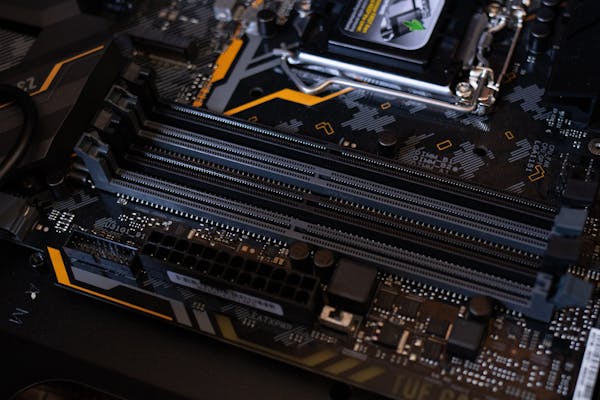Source article: click here (4G rotating proxy)

Understanding Dynamic 4G Proxy Servers
In today’s digital landscape, 4G rotating proxies have gained prominence for maintaining online privacy.
Defining 4G Rotating Proxies
4G rotating proxies leverage cellular data connections to provide changing IPs to users. Unlike static proxies, they offer dynamic IP rotation, reducing detection risks.
How Do They Work?
When connected, a dynamic IP from a mobile network is provided. These IPs rotate based on time or requests, hindering surveillance.
Advantages of Using 4G Rotating Proxies
- Enhanced Anonymity: Dynamic IP rotation masks real IP addresses.
- Overcoming Location Barriers: Changing IPs enable viewing of geo-blocked sites.
- Lowered Detection Rates: Frequent IP changes circumvent anti-bot measures.
Practical Implementations
- Data Extraction: Rotating IPs ensure continuous data collection.proxies facilitate automation.
- Ad Verification: Changing IPs validate ad placements.
- o Consider}
In choosing a proxy service, consider:
- IP Pool Size: A larger pool offers better rotation.
- IP Change Intervals: Determine if the service rotates per request.
- Geographical Coverage: Access to multiple regions broadens usability.
Potential Challenges
- Pricing Structures: 4G proxies may be pricier compared to other types.
- Network Reliability: Mobile networks might experience fluctuations.
- Regulatory Concerns: Ensure usage respects terms of service.
Summing Up
Mobile 4G proxies offer unparalleled anonymity, making them invaluable in today’s digital age.
Understanding the Technical Mechanisms of Dynamic 4G Proxy Servers
Within the sphere of online anonymity, 4G rotating proxies have emerged as pivotal tools for maintaining user anonymity.
What Are 4G Rotating Proxies?
These proxies leverage cellular data connections to assign dynamic IP addresses to users. Unlike static proxies, they change IP addresses periodically, reducing detection risks.
Operational Dynamics
When activated, a dynamic IP from a mobile network is provided. These IPs rotate based on time or requests, making tracking difficult.
Advantages of 4G Rotating Proxies
- Increased Security: Dynamic IP rotation obscures user identity.
- Overcoming Location Barriers: Changing IPs enable viewing of geo-blocked sites.
- Reduced IP Bans: Frequent IP changes circumvent anti-bot measures.
Use Cases for Mobile Proxies
- Data Extraction: Rotating IPs maintain access to target sites.
- Automated Posting: Dynamic proxies support multiple profiles.
- Competitor Analysis: Changing IPs monitor competitor strategies.
Factors to Consider
When opting for a 4G rotating proxy, consider:
- IP Pool Size: A larger pool reduces repetition.
- IP Change Intervals: Determine if the service has fixed durations.
- Location Options: Access to multiple regions aids in geo-testing.
Considerations Before Use
- Pricing Structures: 4G proxies may be pricier compared to other types.
- Network Reliability: Mobile networks may affect consistency.
- Ethical and Legal Considerations: Ensure usage respects terms of service.
Summing Up
Mobile 4G proxies provide dynamic IP solutions, making them invaluable in today’s digital age.
Today’s online landscape, remaining private and avoiding blocks has become more critical than ever. Businesses, marketers, and developers often rely on proxies to simulate different locations. Among these, 4G rotating proxies have become a top-tier option.
What makes them better or worse than other alternatives like residential proxies? Let’s break it down.
== What is a 4G Rotating Proxy?
A 4G rotating proxy is a proxy that routes internet traffic through a real mobile device. These proxies rotate IPs at preset intervals or upon request, emulating human behavior and reducing the chance of bans or blocks.
== Main Proxy Types
Let’s look at the key proxy types before comparing:
1. **Datacenter Proxies**
– Fast and affordable, but easily detectable.
2. **Residential Proxies**
– Use IPs assigned to real homes. More legit, but slower and costlier.
3. **4G Mobile Proxies**
– Use real SIMs on LTE networks. Best for scraping, bots, social media.
4. **SOCKS5 Proxies**
– Protocol-based, flexible, used for various apps, not just HTTP.
== Comparison Table
| Feature | 4G Rotating Proxies | Datacenter Proxies | Residential Proxies | SOCKS5 Proxies |
|————————|———————|———————|———————|—————-|
| IP Source | Mobile Network (SIM)| Data Centers | Home IPs | Varies |
| Rotation | Yes (Frequent) | Sometimes | Optional | Manual |
| Ban Resistance | High | Low | Medium | Depends |
| Speed | Medium | High | Low-Medium | High |
| Price | High | Low | Medium | Low-Medium |
| Target Use | Social, Ads, Bots | General Scraping | E-commerce, Research| General |
| Block Detection | Low | High | Medium | Medium |
== Technical Advantages of 4G Rotating Proxies
Why are 4G proxies so powerful?
– **Real Device Trust**: Websites trust mobile IPs more than others due to carrier NAT and wide user pools.
– **Shared Reputation**: IPs are shared across many users, making banning a single user risky.
– **Geo-targeted Mobile Carriers**: Rotate between networks in real U.S. cities or countries.
– **Dynamic Rotation**: Can rotate every few minutes or after each request.
– **Bypasses Captchas**: Mobile IPs are less likely to trigger captchas or challenge verifications.
== Where 4G Proxies Win
Let’s cut to the chase— if you’re scraping Google or LinkedIn, nothing works better than a solid 4G proxy.
– Instagram and TikTok trust mobile IPs.
– Web scraping? You’ll trigger fewer blocks.
– Ads management across banned zones? Done.
== Where They Fall Short
– **Cost**: They’re not cheap.
– **Speed**: Slower than static datacenter options.
– **Limited Threads**: Some providers limit concurrent usage.
== SOCKS5 vs 4G: Protocol vs Behavior
If you need raw protocol-level control, SOCKS5 is your friend. But they don’t have native rotation.

| Attribute | 4G Proxy | SOCKS5 Proxy |
|———————|——————–|——————–|
| Protocol Type | HTTP/HTTPS | SOCKS5 (All apps) |
| Rotation | Yes | Manual |
| IP Trust Level | Very High | Medium |
| Use Cases | Social, Ads, Bots | Torrenting, Apps |
== Use Cases Side-by-Side
**4G Rotating Proxies:**
– Social Media Management
– Mobile Ad Verification
– SEO Scraping
– Sneaker Bots / E-com Testing
– Marketplace Automation
**Datacenter Proxies:**
– High-volume scraping (non-sensitive)
– Speed-demanding tasks
– Price-conscious campaigns
**Residential Proxies:**
– E-com price intelligence
– Research tools
– CAPTCHA-heavy targets
**SOCKS5 Proxies:**
– Application-level traffic routing
– Anonymity over torrents
– Bypassing firewalls
== How to Choose the Right One?
Not all proxies are created equal. Here’s how to choose:
– Need speed? Go datacenter.
– Need trust and stealth? Go 4G mobile.
– Need app-level routing? Go SOCKS5.
– Need wide IP pools without rotation? Try residential.
== Future of 4G Rotating Proxies
With AI detection systems growing smarter, only carrier networks are keeping up. We’re seeing:
– 5G proxy rollouts in testing
– Smarter rotation algorithms
– Integration with automation platforms like Jarvee, NextPost, Puppeteer
== Final Verdict
If you’re serious about anonymity, 4G rotating proxies are your best bet. For any campaign that’s stealth-heavy or bot-powered, it’s worth the investment.
== Spintax Conclusion
Whether you’re managing client accounts, investing in the right proxy is a make-or-break decision.
They may feel expensive, but the benefits outweigh the cost.
https://www.fortinet.com/resources/cyberglossary/proxy-server
https://en.wikipedia.org/wiki/Proxy_server
https://support.microsoft.com/en-us/windows/use-a-proxy-server-in-windows-03096c53-0554-4ffe-b6ab-8b1deee8dae1
https://www.reddit.com/r/explainlikeimfive/comments/1dfgepb/eli5_what_is_a_proxy_server_and_why_would_i_as_an/
https://surfshark.com/blog/proxy-server





















